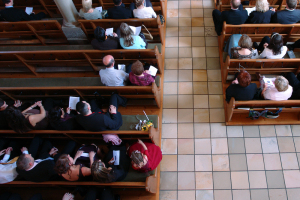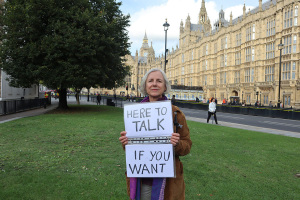Pentecostal Growth in Asia Challenges Catholic Church
The rapid growth of Pentecostalism in Asia forced a panel of Catholic leaders to re-examine the meaning of ecumenism on the Asian continent and how the church can meet the needs of Catholics within this context.
Catholic clergies, lay leaders, and representatives of its communities gathered for a first- of-its-kind seminar, entitled “The Search for Christian Unity: Where We Stand Today,” last weekend in Manila, Philippines.
The conference brought together 133 participants and representatives of the Episcopal conferences of Kazakhstan, Japan, Malaysia-Singapore-Brunei, the Philippines, Taiwan, and a representative of the Catholic Church in Mongolia.
Participants affirmed that the ecumenical movement is “inspired by the Holy Spirit” and all Catholics are called to work for Christian unity. They also recognized the “profound changes” caused by Pentecostalism in Christian churches in Asia and the need for Catholics to learn from its success and apply the qualities to the Catholic Church, according to the 1,200-word document issued by the group on Feb. 10.
The working group listed positive aspects about Pentecostalism that included lively worship, strong community life, and an emphasis on personal prayer and conversion.
On the other hand, the gathering also highlighted perceived negative qualities about Pentecostalism which included: overemphasis on wealth and health that can lead to a disregard for the message of the cross, stress on feelings at the expense of truth, and worship regarded more as a moment of entertainment than an encounter with Jesus, according to The Roman Catholic Archdiocese of Manila website.
Pentecostalism has seen notable growth in Asia in the past century, although minimal when compared to the movement in Africa and Latin America. Pentecostals represent 3.5 percent of Asia’s population where Christians are estimated to only make up 9 percent, or 351 million people, according to the Pew Forum “Spirit and Power” study last year.
The largest church in the world – the 700,000-membered Yoido Full Gospel Church in Seoul, South Korea – is composed of Korean Pentecostals. Pentecostals and charismatics make up 15 percent of the population in both South Korea and the Philippines.
Catholic leaders at the conference called for changes in the church to create the “necessary” environment to retain members based on studying the cause of Pentecostal growth in Asia.
Among the list of changes, Catholic churches in Asia hope to have a warmer atmosphere in church, a more joyful worship service, and greater openness to the contributions of laity.
The working group also urged weekly Bible studies to provide opportunities for sharing personal testimonies and the formation of more retreats for lay people.
Among those who attended the conference were Cardinal Walter Kasper, president of the Vatican’s Christian unity council, and Archbishop Angel Lagdameo, president of the Philippines bishops’ conference.
The seminar was jointly sponsored by the Pontifical Council for Promoting Christian Unity, the Federation of Asian Bishop’s Conferences and the Catholic Bishops’ Conference of the Philippines.





























